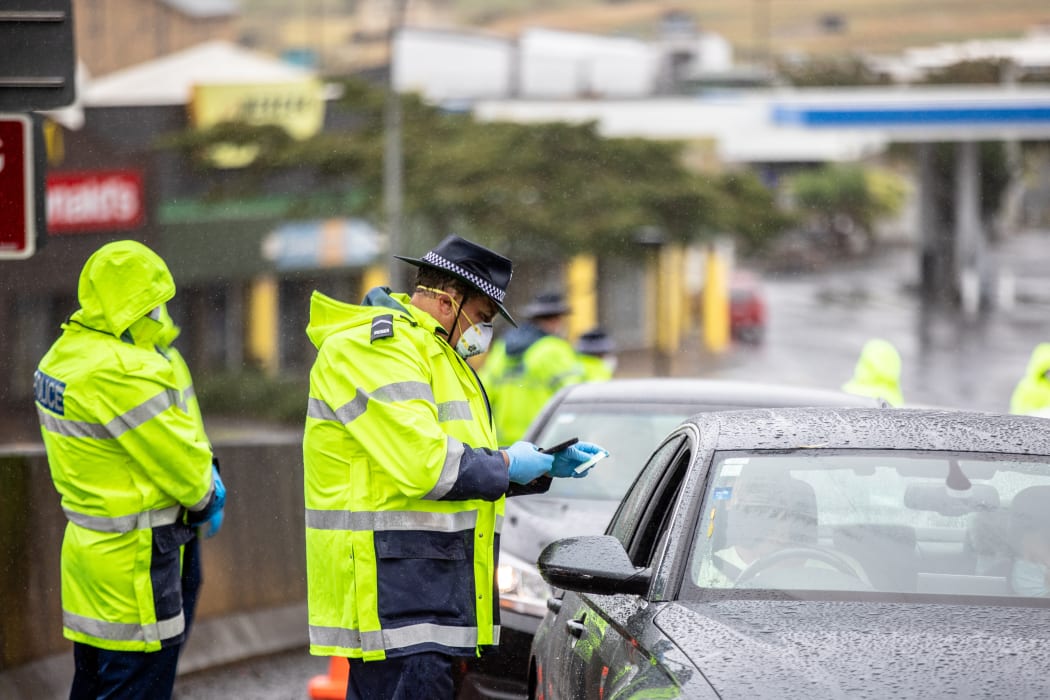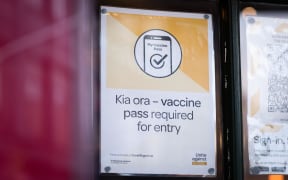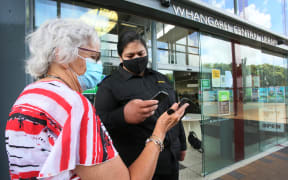The combination of the Covid-19 protection system and the removal of internal borders later this month could cause a massive spike in infections, says microbiologist Siouxsie Wiles.

Microbiologist Siouxsie Wiles says Aucklanders should try to avoid vulnerable communities and those with low vaccination rates when internal borders lift. (File image). Photo: RNZ / Dom Thomas
On Friday, there were only 92 new community cases of Covid-19 in the country - the first time in weeks the number had been below 100, and there were 98 new community cases reported today.
Dr Wiles said the smaller tallies are a sign that vaccinations and the now defunct alert levels have been suppressing the Delta outbreak.

Siouxsie Wiles. Photo:
"It was showing actually that our vaccinations had been playing an incredible role in keeping case numbers low and that the changes that had been made to the alert level system were not contributing massively to an increase in cases."
But that picture could change quickly because the new traffic light system allowed many more interaction between people, she said.
"There's far more mixing of people now, far more interactions, and it wouldn't at all surprise me if our case numbers start to rise again. The question is whether we can keep them at a level that protects our health system and our hospitals."
It could take a week or two before case numbers would show what impact the new system was having, Dr Wiles said.
The combination of the new system and the internal borders coming down had the potential to cause a massive spike in infections, she said.
"We obviously have the unvaccinated and the under 12s and they are not protected from severe disease, so depending on where the virus spreads, we could see a massive rise in cases and hospitalisations if it starts to circulate in those people and communities that are not already protected by vaccinations."
Dr Wiles said this was why she thought Aucklanders should put off holiday plans.
"I'm imploring Aucklanders to 'staycation' rather than to head to other areas, especially those areas where the communities have asked us to stay away, because they are busy getting the vaccination numbers up."
Dr Baker: summer and vaccination rates could help
Otago University epidemiologist Michael Baker said he suspects case numbers will trend upwards more markedly.

Michael Baker. Photo:
But that trend may not be so steep for Auckland, as vaccination coverage is now high and the warmer weather meant people would spend more time outside, and open windows more.
"We probably expect the numbers to start tracking up in Auckland because we are putting viewer controls on the virus, but it may be quite a small effect because we are entering summer and people are doing far more things outside and vaccination coverage is getting into quite a high range now."
He was more concerned about places outside Auckland.
"That is a bigger problem because we have the virus present in decent numbers outside of Auckland, and some places with largely low vaccine coverage - in particular in Northland and pockets of the Waikato - they are places to watch."
Dr Baker said he was watching carefully to see if the traffic light system would be equally successful at suppressing the virus, but also didn't expect signs either way for some weeks.
He agreed the lowered Covid-19 case figures for the past two days were an encouraging sign that New Zealand's strategy for combating the virus had been working.
He said three important barriers erected against the virus had been doing their job: "Vaccination coverage - that's really helping, the other barrier is contact tracing, and of course the third is the alert level 3 system that we did have."
Spread of Omicron internationally could change the picture
The spectre of the Omicron variant was also weighing on Dr Wiles' mind.
"Depending on what happens on the next weeks or months with that variant, is it more transmissible? Are people who a vaccinated susceptible to infections? Does it cause a more severe infection?
"All of those things should impact then on how we behave in the future and may well have implications for our [international] borders.
"We'd be fools not to pay attention to the data. The data is what has served us well so far. We would be idiots not to see what it says before moving into the next phase of our response."






